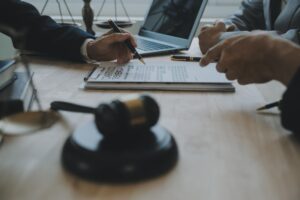Skilled Bankruptcy Counsel and Representation in Harrisburg
Waking up day after day with the pressure of overwhelming debt is incredibly stressful. Whether you are a victim of rough economic times or personal adversity, you are far from alone if your financial situation has slipped out of your control.
For many, a personal or business bankruptcy can offer a legitimate fresh start or the leeway to get things going in a positive direction once again. It is not the only solution — but bankruptcy is often the least risky and most viable way to go. To discuss options available to you with a caring, financially savvy attorney, call today and request a free, no-pressure consultation with one of our Harrisburg, Pennsylvania, bankruptcy attorneys.

Experienced Debt Relief Attorneys
At the Harrisburg, Pennsylvania, Law Office of Jacobson, Julius & Harshberger, we will assess your financial picture and offer dependable information about bankruptcy and various alternatives, including loan modifications. You can count on our lawyers to ask the right questions, confront the issues that matter and work hard to help you find the best available solution. Our experience includes many cases of:
- Chapter 7 bankruptcy — the most straightforward form of relief for many whose financial problems primarily involve credit card balances, back rent and other unsecured debts
- Chapter 13 bankruptcy — offering debt relief and reorganization with more time to pay for people with a reliable, substantial income source, including the opportunity to strip the lien of a second mortgage or cram-down an auto loan
- Chapter 11 bankruptcy — most commonly used to enable business reorganization, but also available to higher-income earning individuals and couples with large real estate debts or other unique circumstances
A Calm, Full-Service Approach to Your Financial and Legal Challenges
We work closely with people who need debt relief, applying our knowledge and experience to address critical issues such as:
critical issues such as:
- Stopping home foreclosure or repossession of other property such as a vehicle
- Stopping creditor harassment that can make your life feel unmanageable
- Stopping wage garnishment
- Determining whether unpaid taxes may be dischargeable through bankruptcy
- Openly discussing the impact of bankruptcy on your credit rating and ability to rebuild credit in the future
- Evaluating and executing asset protection strategies
Take a Positive Step Now by Calling Us at 717-909-5858
Our law practice is focused on helping South Central Pennsylvania individuals and families find solutions that enable them to move forward in life. If debt is weighing on you, and you need to talk to a professional who can explain your rights and take action, please contact us online today. We are located in Harrisburg, and in your location by appointment only.
solutions that enable them to move forward in life. If debt is weighing on you, and you need to talk to a professional who can explain your rights and take action, please contact us online today. We are located in Harrisburg, and in your location by appointment only.
We are a debt relief agency. We help people file for bankruptcy protection under the Bankruptcy Code.
817-494-0943
Navigating Financial Distress:
Part1: A Guide to Understanding Your Options in Harrisburg, PA
Introduction
 Dealing with overwhelming debt can be a harrowing experience. In Harrisburg, PA, many individuals and families find themselves struggling to keep up with mounting bills and financial obligations. The stress and anxiety caused by financial difficulties can be debilitating, but there is hope. Understanding your options, including the possibility of bankruptcy, can be the first step towards regaining control of your financial future.
Dealing with overwhelming debt can be a harrowing experience. In Harrisburg, PA, many individuals and families find themselves struggling to keep up with mounting bills and financial obligations. The stress and anxiety caused by financial difficulties can be debilitating, but there is hope. Understanding your options, including the possibility of bankruptcy, can be the first step towards regaining control of your financial future.
Understanding Bankruptcy: A Fresh Start
 Bankruptcy is often viewed as a last resort, but it can be a powerful tool for those drowning in debt. It offers a chance to reset your financial situation, providing relief from creditors and a path to rebuild your credit. In Harrisburg, PA, bankruptcy attorneys specialize in different chapters of bankruptcy, each designed to cater to specific financial situations.
Bankruptcy is often viewed as a last resort, but it can be a powerful tool for those drowning in debt. It offers a chance to reset your financial situation, providing relief from creditors and a path to rebuild your credit. In Harrisburg, PA, bankruptcy attorneys specialize in different chapters of bankruptcy, each designed to cater to specific financial situations.
Chapter 7 Bankruptcy: This is often the quickest form of bankruptcy, ideal for those with limited income. It can help eliminate unsecured debts like credit card balances and medical bills. Most people who file for Chapter 7 can keep their possessions, including homes and cars, depending on their situation.
Chapter 13 Bankruptcy: This option is best for individuals with a regular income who can pay back their debts over time. It allows for the reorganization of debt and provides a structured payment plan, typically over three to five years.
Chapter 11 Bankruptcy: Primarily used for business reorganization, Chapter 11 can also be an option for individuals with higher incomes or substantial debts. It allows for restructuring while keeping the business or personal assets operational.
The Role of a Bankruptcy Attorney
 A skilled bankruptcy attorney in Harrisburg, PA, can provide invaluable assistance. They will assess your financial situation, help you understand the implications of filing for bankruptcy, and guide you through the legal process. They can also offer alternatives to bankruptcy, such as loan modifications or debt settlement plans.
A skilled bankruptcy attorney in Harrisburg, PA, can provide invaluable assistance. They will assess your financial situation, help you understand the implications of filing for bankruptcy, and guide you through the legal process. They can also offer alternatives to bankruptcy, such as loan modifications or debt settlement plans.
Protecting Your Assets and Rebuilding Your Credit
One of the biggest concerns for individuals considering bankruptcy is the impact on their assets and credit score. Experienced attorneys can help in developing asset protection strategies and advise on how bankruptcy will affect your credit. They can also provide guidance on rebuilding your credit post-bankruptcy.
Personalized Legal Guidance
Every financial situation is unique, and a one-size-fits-all approach does not work when it comes to debt relief. Harrisburg bankruptcy attorneys understand this and offer personalized legal guidance. They take the time to understand your specific circumstances and tailor their advice accordingly.
Free Consultations: Taking the First Step
Many law firms in Harrisburg, PA, offer free consultations for those considering bankruptcy. This no-pressure environment allows you to understand your options and make an informed decision about your financial future.
Get Assistance
If you are in Harrisburg, PA, and struggling with debt, remember that you are not alone. There are experienced bankruptcy attorneys ready to help you navigate through these challenging times. Bankruptcy might seem daunting, but with the right guidance, it can be a stepping stone to a more secure financial future. Take that first step today and schedule a consultation to explore your options.
Part 2: The Bankruptcy Process Explained
Filing for Bankruptcy: The Initial Steps
The journey towards financial freedom through bankruptcy begins with understanding the process. In Harrisburg, PA, the first step is typically a consultation with a bankruptcy attorney. During this meeting, you’ll discuss your financial situation in detail. The attorney will review your debts, assets, income, and expenses to determine the most suitable form of bankruptcy or alternative debt relief options.
Gathering Documentation
A critical part of the bankruptcy process is gathering and organizing financial documents. This includes tax returns, pay stubs, bank statements, loan documents, and any other relevant financial records. Your attorney will guide you through this process, ensuring that all necessary documentation is collected for a smooth filing process.
Credit Counseling and Debtor Education
Before filing for bankruptcy, you are required to complete a credit counseling course from an approved agency. This course is designed to help you understand the implications of bankruptcy and explore other debt relief options. After filing, you’ll also need to complete a debtor education course, which focuses on financial management skills to avoid future financial difficulties.
The Filing Process
Once all documents are prepared and credit counseling is complete, your attorney will file a petition with the bankruptcy court. This petition includes detailed information about your debts, assets, income, and expenses. Filing the petition triggers an automatic stay, which immediately stops most creditors from pursuing collection actions against you.
Meeting of Creditors (341 Meeting)
After filing, you’ll attend a meeting of creditors, also known as the 341 meeting. This is a short meeting where the bankruptcy trustee and any interested creditors can ask you questions about your bankruptcy forms and financial situation. Your attorney will be present with you during this meeting to provide support and guidance.
The Role of the Bankruptcy Trustee
In both Chapter 7 and Chapter 13 bankruptcies, a trustee is appointed to oversee your case. In Chapter 7, the trustee reviews your assets to determine if any can be sold to pay your creditors. In Chapter 13, the trustee oversees your repayment plan, collecting payments from you and distributing them to your creditors.
Discharge of Debts
The ultimate goal of bankruptcy is the discharge of debts. In Chapter 7, this usually occurs a few months after filing. In Chapter 13, discharge occurs after you complete your repayment plan, which can take three to five years. A discharge means that you are no longer legally required to pay the discharged debts.
Part 3: Life After Bankruptcy
Rebuilding Your Credit
Bankruptcy can stay on your credit report for up to 10 years, but its impact lessens over time. You can start rebuilding your credit immediately after discharge. Strategies include:
Budgeting and Financial Planning: Develop a realistic budget and stick to it. This helps in managing your finances effectively and avoiding future debt traps.
Secured Credit Cards: Consider using a secured credit card, where you deposit money as collateral. This can be a safe way to rebuild credit if used responsibly.
Timely Bill Payments: Pay all your bills on time. Payment history is a significant factor in your credit score.
Credit Builder Loans: Some financial institutions offer small loans designed to help people rebuild their credit. These loans are usually deposited in a locked account while you make payments.
Dealing with the Emotional Impact of Bankruptcy
Bankruptcy can be emotionally challenging. Many people feel a sense of failure or embarrassment. It’s important to remember that bankruptcy is a legal tool designed to help people recover from financial distress. Seeking support from family, friends, or professional counselors can be beneficial in dealing with these emotions.
Part 4: Preventing Future Financial Distress
Creating a Financial Plan
The key to avoiding future financial problems is to create and follow a sound financial plan. This plan should include:
Emergency Fund: Aim to save enough to cover at least three to six months of living expenses.
Realistic Budgeting: Track your income and expenses. Make adjustments to ensure you live within your means.
Avoiding High-Interest Debt: Be cautious about taking on high-interest debts like credit cards or payday loans.
Regular Financial Reviews: Periodically review your financial plan to ensure it aligns with your current situation and goals.
Seeking Professional Financial Advice
Consider working with a financial advisor for ongoing guidance. They can help you develop a long-term financial strategy, including retirement planning, investments, and insurance.
Conclusion
Facing financial challenges can be overwhelming, but there are paths to recovery and stability. Bankruptcy, while a significant step, can be a viable solution to regain financial control. With the right guidance and a commitment to a sound financial future, you can overcome the challenges of debt and build a more secure financial future in Harrisburg, PA.
This extended content provides a comprehensive guide for individuals in Harrisburg, PA, considering bankruptcy. It covers the process of filing for bankruptcy, life after bankruptcy, and strategies for preventing future financial distress, aiming to provide a thorough understanding and reassurance for those facing financial difficulties.
How much does a bankruptcy lawyer cost?
We understand that concern over cost is often a major issue when seeking legal counsel. We offer a consultation on your case and accept credit card payments — we keep our rates competitive and work to avoid delays or missteps that can increase costs. Depending on your needs, we may be able to assist you for a flat fee, or charge you on an hourly basis. For a helpful consultation without cost, pressure or risk, please contact us today.
What does a bankruptcy lawyer do?
At the Harrisburg, Pennsylvania, Law Office of Jacobson, Julius & Harshberger, we will assess your financial picture and offer dependable information about bankruptcy and various alternatives, including loan modifications. You can count on our lawyers to ask the right questions, confront the issues that matter and work hard to help you find the best available solution. We focus our energies on Chapter 7, 13 and 11 bankruptcy counsel for individuals and businesses, for asset protection and other financial concerns.
What should you expect from a bankruptcy lawyer?
We care about the people who come to us for counsel — and we are dedicated to achieving results that meet their goals. We understand the stresses involved and work hard to minimize them in every possible way. Schedule a consultation at our Pennsylvania law office for more information. Prompt, courteous attention and responsive service are important strengths of our firm. Our lawyers are knowledgeable and prepared. Equally important, we are easy to find and easy to talk to. From our initial consultation forward, we want you to feel comfortable, cared for and welcome to ask questions and communicate with us anytime.


